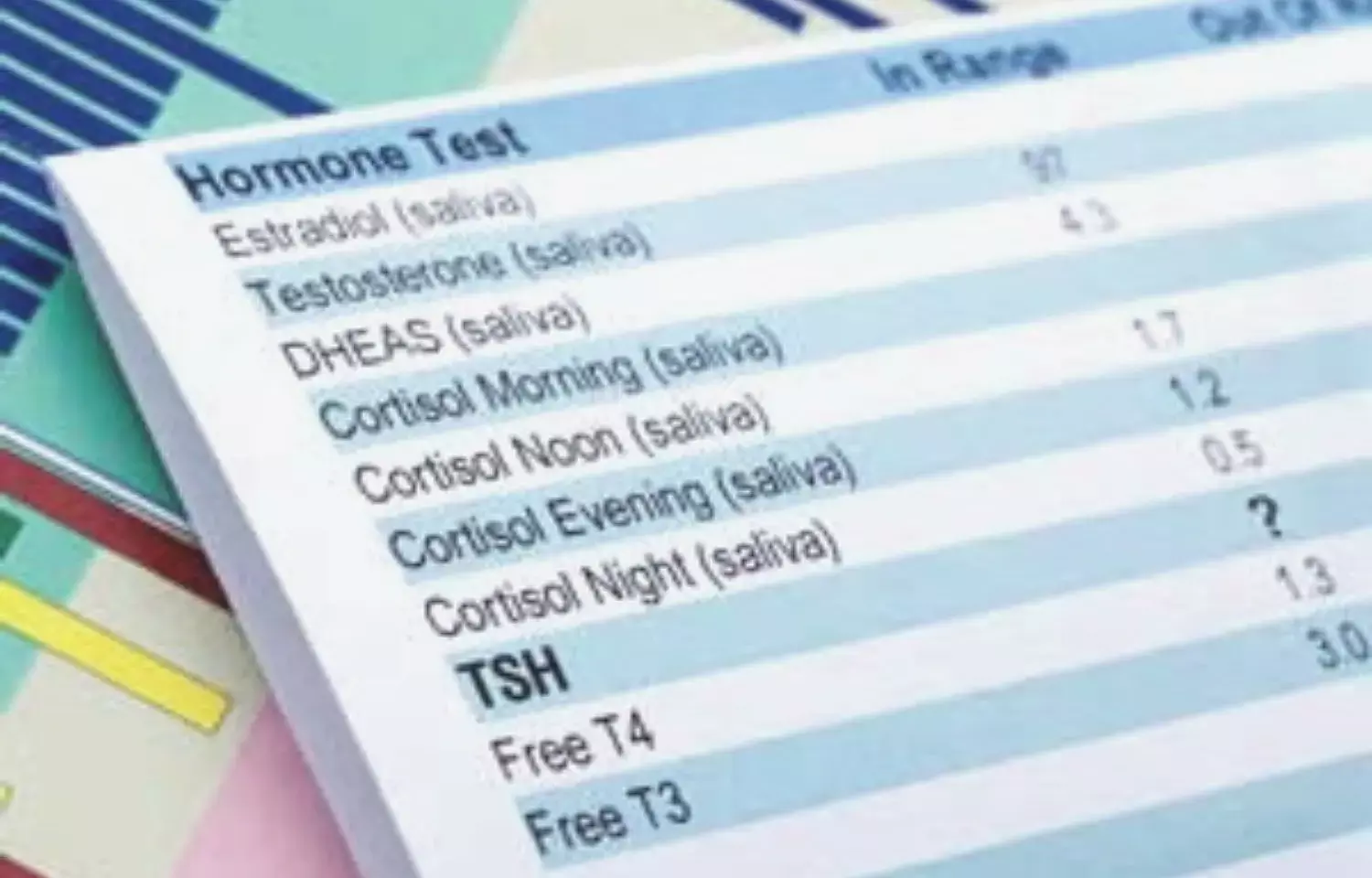- Home
- Medical news & Guidelines
- Anesthesiology
- Cardiology and CTVS
- Critical Care
- Dentistry
- Dermatology
- Diabetes and Endocrinology
- ENT
- Gastroenterology
- Medicine
- Nephrology
- Neurology
- Obstretics-Gynaecology
- Oncology
- Ophthalmology
- Orthopaedics
- Pediatrics-Neonatology
- Psychiatry
- Pulmonology
- Radiology
- Surgery
- Urology
- Laboratory Medicine
- Diet
- Nursing
- Paramedical
- Physiotherapy
- Health news
- Fact Check
- Bone Health Fact Check
- Brain Health Fact Check
- Cancer Related Fact Check
- Child Care Fact Check
- Dental and oral health fact check
- Diabetes and metabolic health fact check
- Diet and Nutrition Fact Check
- Eye and ENT Care Fact Check
- Fitness fact check
- Gut health fact check
- Heart health fact check
- Kidney health fact check
- Medical education fact check
- Men's health fact check
- Respiratory fact check
- Skin and hair care fact check
- Vaccine and Immunization fact check
- Women's health fact check
- AYUSH
- State News
- Andaman and Nicobar Islands
- Andhra Pradesh
- Arunachal Pradesh
- Assam
- Bihar
- Chandigarh
- Chattisgarh
- Dadra and Nagar Haveli
- Daman and Diu
- Delhi
- Goa
- Gujarat
- Haryana
- Himachal Pradesh
- Jammu & Kashmir
- Jharkhand
- Karnataka
- Kerala
- Ladakh
- Lakshadweep
- Madhya Pradesh
- Maharashtra
- Manipur
- Meghalaya
- Mizoram
- Nagaland
- Odisha
- Puducherry
- Punjab
- Rajasthan
- Sikkim
- Tamil Nadu
- Telangana
- Tripura
- Uttar Pradesh
- Uttrakhand
- West Bengal
- Medical Education
- Industry
TSH level decrease at 2 h after food intake might affect subclinical hypothyroidism diagnosis

China: The thyroid stimulating hormone (TSH) level at 2 h after the food intake decreased significantly by about 30% compared with the fasting state which in turn might influence th diagnosis of subclinical hypothyroidism, states a recent study. The study was published in the journal BMC Endocrine Disorders on 01 April 2022.
Previous studies have shown that TSH secretion and its blood level exhibit a circadian rhythm due to which it becomes necessary to further investigate the difference blood TSH concentration between 7:00 am and 9:00 am after meal to determine if it is affected by the food intake or diurnal rhythm. Therefore, Aimei Dong, Department of Endocrinology, Peking University First Hospital, Beijing, China, and colleagues aimed to investigate the effects of blood sampling after calorie intake on TSH level, compared with blood sampling in fasting state in a prospective, randomized, controlled study.
The study included subjects from the outpatients in the department of endocrinology without evidence of thyroid diseases. They were then randomiaed into the fasting group, diet intake group, and glucose intake group, respectively. Collection of fasting blood was done from all subjects at 7:00 am for the measurement of TSH and free thyroxine (FT4) concentrations. Following which, the participants were maintained at fasting state (fasting group), had an intake of the mixed diet with 400 kcal calories (diet intake group), and had an intake of 75 g glucose (glucose intake group), respectively. The blood was collected again 2 h later (9:00 am on the same day) for TSH and FT4 level measurement and comparison.
The study enrolled a total of 150 subjects, out of which 146 met the inclusion criteria, with 48, 48, and 50 in the diet intake group, glucose intake group, and fasting group, respectively.
The findings of the study were as follows:
· The TSH in the diet intake group was significantly lower at 9:00 am (TSH9am) than the level at 7:00 am (TSH7am), with a median variation of -0.71 mU/L, and a median variation rate of -32.4%. In the glucose intake group, TSH9am was also significantly lower than TSH7am, with a median variation of -0.73 mU/L, and a median variation rate of -31.5%.
· For the fasting group, TSH9am decreased slightly but was significantly lower than TSH7am, with a median variation of -0.1 mU/L, and a median variation rate of -5.2%.
· According to TSH7am measurements, 9 subjects (3 subjects in each group) met the diagnostic criteria of subclinical hypothyroidism. However, according toTSH9am measurements, only 2 patients in the fasting group met the diagnostic criteria of subclinical hypothyroidism.
After food intake, TSH level was reduced significantly versus at fasting state in the morning. If the reference range of TSH used in the laboratory was from fasting blood samples, it would be better for evaluating the TSH level in fasting blood obtained in the morning than with random or postprandial samples.
To conclude, if the reference range of TSH used in the laboratory was from fasting blood samples, it would be better to evaluate the TSH level in fasting blood obtained in the morning compared with random or postprandial samples.
Reference:
Dong, A., Huang, Y., Huang, Y. et al. Effects of calorie intake and sampling time on thyroid stimulating hormone concentration. BMC Endocr Disord 22, 85 (2022). https://doi.org/10.1186/s12902-022-01005-7
KEYWORDS: BMC Endocrine Disorders, thyroid stimulating , hormone, TSH, calorie intake, food intake, fasting, postprandial, thyroid function, Aimei Dong, blood samples
Dr Kamal Kant Kohli-MBBS, DTCD- a chest specialist with more than 30 years of practice and a flair for writing clinical articles, Dr Kamal Kant Kohli joined Medical Dialogues as a Chief Editor of Medical News. Besides writing articles, as an editor, he proofreads and verifies all the medical content published on Medical Dialogues including those coming from journals, studies,medical conferences,guidelines etc. Email: drkohli@medicaldialogues.in. Contact no. 011-43720751


